COLLEGE OF ENGINEERING & SCIENCE
Research Faculty Profiles
Dr. Shuarav Alam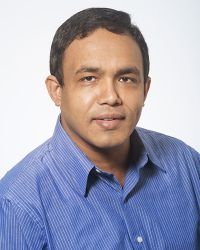
Specialties: Geopolymer, Rapid Curing, 3D printing, Energy Efficient, and Halloysite Nanotubes
Research Lab: Advanced Material Research Lab (AdMRL), Bogard Hall 106
My principal research interest is the rapid curing technique of geopolymer potentially suitable for 3D printing. Geopolymer is strong and eco-friendly sustainable cementitious construction material. My other research involves the development of energy-efficient material using halloysite nanotubes. Another research interest includes the rehabilitation of buried pipes and hidden HVAC lines.
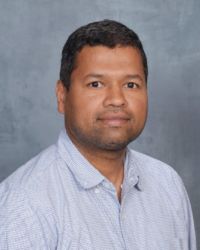 Dr. Prabhu Arumugam
Dr. Prabhu Arumugam
Specialties: Advanced Materials, Electrochemical Sensors, Micro-Nanofabrication, Brain Chemicals, Environmental Toxins, Chemical Neuroscience
Research Lab: Advanced Materials Research Laboratory, Institute for Micromanufacturing 213
Our research focuses on understanding the electrochemical, surface and mechanical properties of novel electrode architectures that employ carbon nanomaterials, conducting polymers, nanocomposites and additive (3D) printed electrode materials and applies fundamental principles such as structure-property relationships, cell-material interactions, mass transport and interfacial phenomena. Applications include multiplexed chemical, biological and environmental sensing, single-cell probing and food-energy-water nexus.
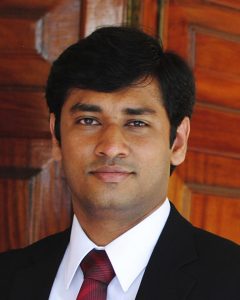 Dr. Rakitha Beminiwattha
Dr. Rakitha Beminiwattha
Specialties: Monte-Carlo Simulation, Electronics, Data Acquisition, Particle Detector, Data analysis, Nuclear Physics, Particle Physics
Research Center: The Center for Applied Studies (CAPS)
Research Lab: Louisiana Tech Particle Detector Laboratory, Engineering Annex 100
My research at the Louisiana Tech University group mainly includes precision tests of the Standard Model of Particle Physics (SMPP) utilizing parity-violating electron scattering (PVES). We propose, design, develop, and build experiments based on PVES. My lab, Louisiana Tech Particle Detector Laboratory, designs, develops, and tests particle detectors for PVES experiments.
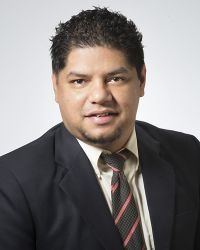 Dr. Prashanna Bhattarai
Dr. Prashanna Bhattarai
Specialties: Power System Protection, Traveling-Wave Relays, Transient Analysis, Power System Modeling, Harmonics and Unbalance, Power Quality, and Electric Machines
Research Lab: Power Systems Research Laboratory, Nethken Hall 100
Faculty and students affiliated with the lab conduct research focused on power system protection, power system modeling, and electric machines. Some of the current research projects include modeling of time-domain protection relays using EMTP, performance analysis and testing of time-domain relays (SEL T400L and SEL-T401L), and analysis of the impacts of voltage imbalance on the steady-state performance of induction machines, etc.
 Dr. Mary Caldorera-Moore
Dr. Mary Caldorera-Moore
Specialties: Biomedical Engineering, Biomaterials, Tissue Engineering, Regenerative Medicine
Research Center: Center for Biomedical Engineering and Rehabilitation Sciences
Research Lab: Multifunctional bioCompatible Materials (MCM) lab, Biomedical Engineering Building 236
Research in the MCM lab combines micro- and nanoscale technologies with intelligent biomaterials to create new and improved biomimetic platforms for studying the influence chemistry, surface topography, and material properties play on directing cell fate or the ability for respond and release therapeutics.
Research in the lab focuses on the design, synthesis, characterization, optimization, and use of advanced micro/nano biomaterial systems. The broader impacts of this research are for the development of innovative systems for targeted, cell-specific responsive drug delivery and regenerative medicine applications.
Dr. Elisa Castagnola
Specialties: Carbon materials, Microfabrication, Electrochemistry, Neurochemical Sensing
Research Lab: Neural Electrode Interface Technologies, Biomedical Engineering Building
The Neural Electrode Interface Technologies Lab, led by Dr. Elisa Castagnola, focuses on combining research in material science and new microfabrication techniques for the development of innovative neurotechnology, advancing state-of-the-art implantable neural devices, advancing state-of-the-art implantable neural devices and bringing them to a clinical setting. The lab is currently working on the development and in-vivo validation of innovative carbon-based neural devices with superior capability in neurochemical sensing and neurophysiological recordings. NIH supports Dr. Castagnola to develop a novel implantable sensor to measure serotonin while simultaneously evaluating neural excitability over the development of neuropathic pain, in collaboration with The University of Pittsburgh (Dr. X.T. Cui) and UT Dallas (Dr. Ben Kolber). Dr. Castagnola’s main interests focus on material science, microfabrication, electrochemistry, neurochemical and electrophysiological sensing, and macrostimulation.
Dr. Jinyuan Chen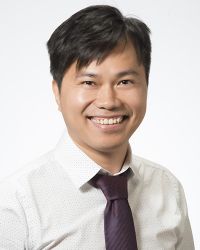
Specialties: Information Theory, Wireless Communication, Distributed Consensus, Blockchain, and Machine Learning
Research Lab: Communication Lab, Nethken Hall 200
My general research interests include information theory, wireless communications, distributed consensus (aka blockchain), and machine learning. My recent work has focused on the following goals: 1) understanding the fundamental limits of networks and distributed systems of great importance, and 2) providing novel solutions for advanced networks and systems with theoretical guarantees.
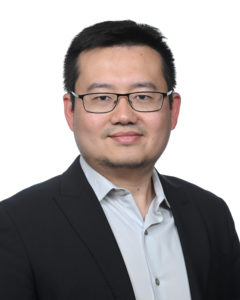 Dr. Yun Chen
Dr. Yun Chen
Specialties: Fluid Mechanics, Microfluidics, Interfacial Phenomena, Droplets and Particles, Surfactant Transport, Emulsions
Affiliated Research Center: Institute for Micromanufacturing
Research Lab: Interfacial Fluid and Particle Transport Lab, Institute for Micromanufacturing L3
Dr. Yun Chen’s main research area is in experimental and theoretical fluid mechanics that encompasses interfacial dynamics of complex flow systems, including droplets, particles, and bubbles at fluid-fluid interfaces, with an emphasis on environmental protection and biological applications. The current focuses are to study the surfactant-driven droplet and particle motion, and particle encapsulation in droplets, via microfluidic approaches, towards the development of novel biomedical devices.
Dr. Ben Choi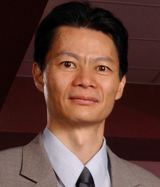
Specialties: Artificial Intelligence, Robotics, Machine Learning, Knowledge Engineering, Multiagent Systems, Parallel Computing
Research Center: Center for Entrepreneurship & Information Technology (CEnIT)
Research Lab: Artificial Intelligent Robotic (AIR Lab), Nethken Hall 241
Designing new multivalued microprocessors, Creating a new machine learning system, Humanoid robots, Knowledge engineering the Web, Making a new parallel and distributed computing framework, Building a better search engine, Automatic organization of computer files and webpages, Building new computers for Artificial Intelligence
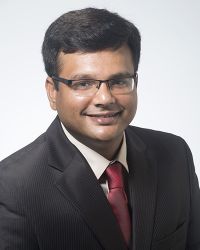 Dr. Pradeep Chowriappa
Dr. Pradeep Chowriappa
Specialties: Data Mining, Data Base Management, and Machine Learning
Research Lab: Data Mining and Machine Learning Lab, Nethken Hall 103
My research interests and activities lie in the area of large-scale intelligent systems with a focus on developing machine-learning models for data-driven discovery. My current research activities include the use of semi-supervised or active learning to build context-aware decision support systems. I am also interested in statistical learning and feature selection in medical databases.
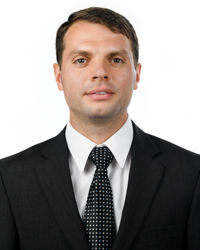 Dr. Joseph Cortez
Dr. Joseph Cortez
Specialties: Mathematics, Combinatorics, Discrete Mathematics
I study combinatorics and other topics in discrete mathematics. Some areas of interest are block designs, optimization problems, and algorithms.
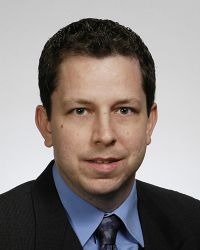 Dr. Kelly Crittenden
Dr. Kelly Crittenden
Specialties: Entrepreneurship and Product Design
Research Center: Integrated STEM Education Research Center
Dr. Crittenden’s research focus is on curriculum design, K-12 outreach, strengths of materials, multidisciplinary design, and innovative product design. He works closely with the Louisiana Tech IMPaCT (Innovation through Multidisciplinary Projects and Collaborative Teams), which provides Louisiana Tech students and faculty with opportunities to collaborate across disciplines to develop new products.
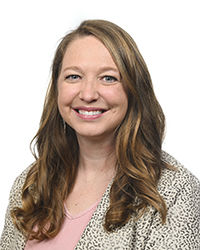 Dr. Krystal Corbett Cruse
Dr. Krystal Corbett Cruse
Specialties: Engineering Education, Retention, Project-Based Learning, First-Year Programs, and Curriculum Development
Affiliated Research Center: Integrated STEM Research Center
Research Lab: Project-Based Learning Office & Classrooms, IESB First Floor
My research is in the discipline of engineering education. I perform mixed-methods analyses in areas related to curriculum development, project-based learning, and retention. Since I oversee the first-year programs and teach in the Instrumentation Control Systems Engineering Technology discipline, the curriculum and classrooms for these programs are my labs. The innovative practices conducted in these programs help to provide a large testbed for supporting and informing my research.
Dr. Weizhong Dai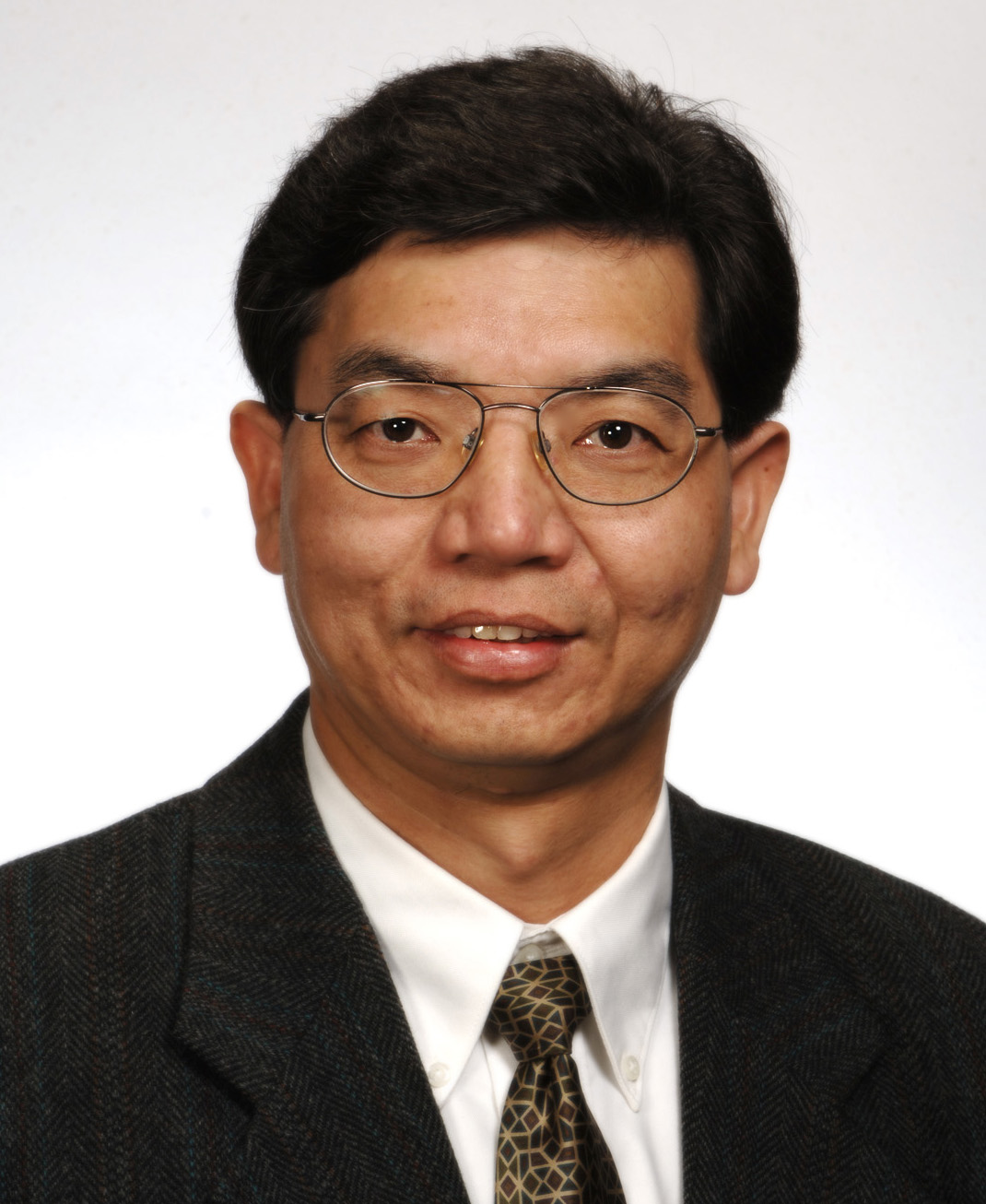
Specialties: Applied Mathematics and Computational Science
Research Lab: Applied Mathematics and Computation, Nethken Hall 233
My research is interdisciplinary in science and engineering, ranging from numerical methods (finite difference, finite element, finite volume, artificial neural network) for solving partial differential equations including fractional-order PDEs to numerical heat transfer, micro/nano heat transfer, and thermal deformation, bio-heat transfer, quantum physics, computational fluid dynamics, and numerical simulations for studying the bio-effect of electromagnetic waves, hydrogen-metal reactions for hydrogen storage, DNA sequencing, and micro-fabrications such as X-ray lithography, laser chemical vapor deposition, and melt crystallization.
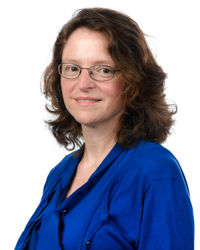 Dr. Mary Fendley
Dr. Mary Fendley
Specialties: Human Factors Engineering, Cognitive Ergonomics, Decision Making, Eye-Tracking
Research Center: Mississippi, Arkansas, Louisiana, Texas Industrial Assessment Center
Research Lab: Human Performance DECoDed, Bogard Hall 320
Dr. Fendley’s research interests are in the areas of cognitive engineering, modeling, decision analysis, and human factors. Recent research projects include the application of simulation and modeling tools for mental resource allocation, human subject experimentation to evaluate the trust in automation, and applying cognitive engineering and modeling methods to improve training. All research supports human reasoning and decision making in dynamic, problem-solving contexts.
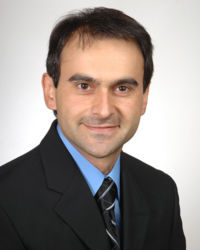 Dr. Detcho Genov
Dr. Detcho Genov
Specialties: Quantum Electrodynamics, Classical Electromagnetic Theory
Research Center: The Center for Applied Physics Science
Research Lab: Computational Electromagnetics Lab, Engineering Annex 221
Our research group interests are in the electromagnetic theory of metamaterials, a class of man-made materials that do not exist in nature and have unique optical properties. Specifically, our research focuses on the design of such materials based on classical electromagnetic theory as well as quantum electrodynamics. Two notable applications of metamaterials are in the development of invisibility devices at optical frequencies and electromagnetic analogues of gravitational singularities (black holes).
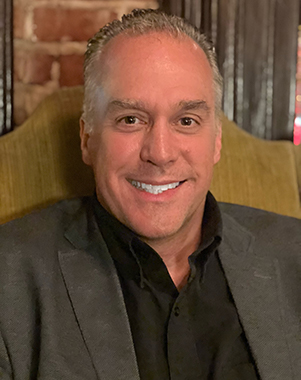 Dr. William Bradley Glisson
Dr. William Bradley Glisson
Specialties: Digital Forensics, Information Assurance, Software Engineering, and Applied Computing Science
Research Lab: Cybersecurity Applied Innovation Laboratory, Nethken Hall
Dr. Glisson’s research is broadly categorized as Cyber Security. More specifically, his research focuses on identifying opportunities in software development for exploitation and the residual data produced through software interactions to identify mitigation solutions, assist with Cyber Forensics investigations, improve information assurance, and advance real-world aspects of applied computing.
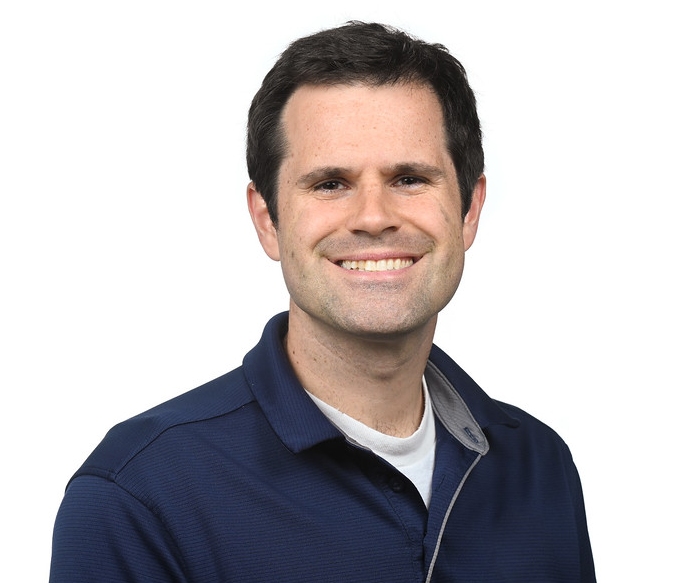 Dr. Nathan Green
Dr. Nathan Green
Specialties: Transcendental Number Theory, Drinfeld Modules, and t-motives
I study algebraic independence and transcendence question for special values of zeta functions, multiple zeta functions, and L-functions in function fields. I use techniques coming from Drinfeld modules and t-motives to approach these questions. A Drinfeld module is a function field analogue of an elliptic curve and provides a geometric setting for studying these special values. I am also interested in applications of classical elliptic curves to cryptography settings – particularly quantum computer-resistant cryptography schemes, like EC isogeny-based cryptography.
Dr. Kris Harris
Specialties: Materials Chemistry, Lithium Batteries, 2D Materials, Graphene, MXenes, NMR, SSNMR, Pulse Sequence Development, and DFT Calculations
Research Lab: Harris Research Group, 331 Carson-Taylor Hall
In the Harris group, we are working to better understand the chemistry of complex new materials. We focus on materials for lithium-ion batteries as well as any novel materials with interesting behavior or applications. Since we develop solids NMR spectroscopic methods, we focus on materials where disorder hinders the application of other techniques.
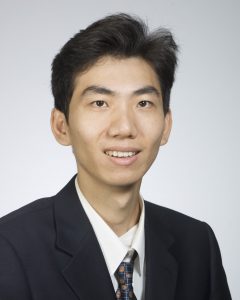 Dr. Songming Hou
Dr. Songming Hou
Specialties: Hyperbolic Systems of Conservations Laws, Inverse Problems, and Interface Problems
Research Lab: Engineering Annex 215
In the past, I worked on several areas including numerical hyperbolic systems of conservations laws, inverse problems, and interface problems. Recently my main focus is on the computational design of knots, mostly related to Rubik’s snake.
Dr. Arun Jaganathan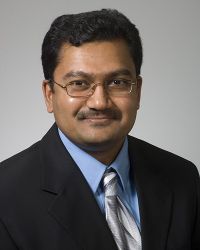
Specialties: Trenchless technology, buried infrastructure, acoustic, elastic-guided waves, electromagnetic wave-type sensors
Research Center: Trenchless Technology Center
Dr. Jaganathan’s lab works to develop sensors and condition assessment technologies for buried infrastructure. The lab’s focus is on acoustic, elastic-guided waves, and electromagnetic wave-type sensors. Research conducted by our team is multidisciplinary in nature and involves computational work, hardware development, and data processing algorithms. Sample projects include the development of ultra wide-band radar for imaging of buried pipes, elastic guided wave inspection and characterization of concrete pipes, and development of “see-ahead” sensors for horizontal directional drilling (HDD) machines.
Dr. Xiyuan Liu
Specialties: Statistics, Machine Learning, Computational Statistics, and Deep Learning
Research Lab: Statistics and Machine Learning, Nethken Hall 223
My area of interest is the application and mathematical induction of Machine Learning, high-dimension data analysis, and Bayesian Inference. Currently, my research centers on applying Conditional Random Field (CRF), a statistical model developed for the classification problem and the Neural Network.
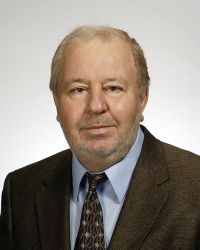 Dr. Yuri Lvov
Dr. Yuri Lvov
Specialty: Layer-by-Layer Nanoassembly
Research Center: Institute for Micromanufacturing
Research Lab: The Nanoassembly Laboratory
A layer-by-layer (LbL) assembly of alternating layers of oppositely charged polyelectrolytes and nanoparticles provides the formation of 5 – 500 nm thick films with monolayers of various substances growing in a preset sequence on any substrates at a growth step of about 1 nm. This technique was called “molecular beaker epitaxy” meaning by this that with simple instruments (exploiting the materials’ self-assembly tendency) one can get molecularly organized films similar to the ones obtained with highly sophisticated and expensive molecular beam epitaxy technology for metals and semiconductors. LbL films can coat solid supports, slides, silicon wafers, plastics, and fiber optics (2D nanoassembly). Besides, LbL films can be assembled on micro- and nanotemplates, such as 100-500 nm diameter latex, drug microcrystals, biological cells, and even viruses, provided by this method for 3D nanoassembly. Polymeric nanoshells also can be prepared with LbL assembly.
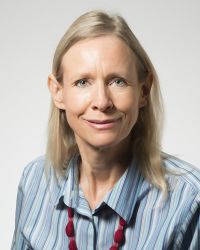 Dr. Joan Lynam
Dr. Joan Lynam
Specialties: Biomass, Engineering Waste to Energy, Biomass Characterization, Sustainable Energy
Research Center: Institute for Micromanufacturing
Research Lab: Waste to Bioproducts Lab, Bogard Hall 116
The Biomass Team is devoted to turning waste materials into products. We have worked with wastes as diverse as rice husks, sugarcane bagasse, corn leaves, and stalks, used sulfuric acid, black liquor from paper mills, lion poop, and shrimp shells. Products we have made from wastes include fuel pellets, cement additives, and oil spill absorbents. We have used processes such as hydrothermal carbonization, deep eutectic solvent dissolution, and pelletization. The team includes both graduate and undergraduate students of several COES majors. Directed elective credits can be obtained by doing research with us and taking the CMEN 450A course.
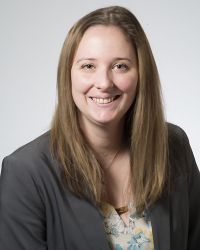 Dr. Elizabeth Matthews
Dr. Elizabeth Matthews
Specialties: Sustainability, Resilience, and Hurricane and Flood Impact on Infrastructure
Research Lab: Environmental and Sustainability Laboratory, Bogard Hall 103/104
I am interested in understanding hurricane and flood impacts to infrastructure. I am involved in research focused on creating component-scale flood damage analysis models for structures. I am also interested in evaluating the sustainability of infrastructure and products through life cycle analysis and research that investigates the intersection of sustainability and resilience. I have also collaborated on efforts related to broadening participation in STEM and increasing diversity.
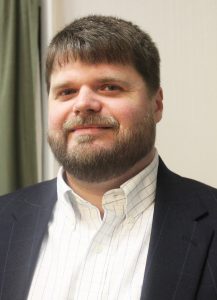 Dr. John Matthews
Dr. John Matthews
Specialties: Trenchless Technology, Pipe Liners, Pipe Materials, Pipe Coatings, Pipe Inspection, Asset Management, and Modeling
Research Lab: Trenchless Technology Center, South Campus
My research focuses on various issues relating to buried infrastructure systems. This includes pipe liner material durability, pipe inspection technology, and equipment for pipe installation. Additionally, my research includes modeling for advanced pipe asset management.
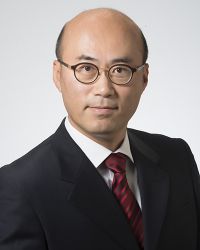 Dr. Manki Min
Dr. Manki Min
Specialties: Security, Post-Quantum, Blockchain, and Online Data Access Model
Research Lab: Secure Computing Lab, Nethken Hall 144
My main research interests are in the security of cyber systems. We have been working on the design of Blockchain consensus schemes for fairer and lightweight as well as the design of wallets for the Blockchain systems. In addition, currently, we are working on the design of post-quantum cryptographic functions based on supersingular isogeny. We are currently designing a cryptographic hash function based on supersingular isogeny and will continue to design of a cryptographic encryption function. We are also working on the design of multi-factor authentication using sound generation by a smart authenticator that will be expanded to a login-less data access model-based.
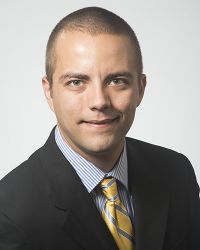 Dr. Arden Moore
Dr. Arden Moore
Specialties: Multiscale Materials and Energy Transport, Nano/Microscale Heat Transfer, Phase Change, Nanomaterials, and Thermal Management of Electronics
Research Center: Institute for Micromanufacturing
Research Lab: The Multiscale Energy Transport and Materials Laboratory, Institute for Micromanufacturing 116
Our work focuses on studying and engineering how electrical and thermal energy moves through materials and devices at the macro-, micro-, and nanoscale. We’re particularly interested in nanowires, nanotubes, thin films, 2D ultrathin materials, and composite or scalable materials that incorporate these types of nanostructures. Applications include energy scavenging, energy production, sustainable alternative materials, chemical and environmental sensing, scalable nanomanufacturing, and advanced thermal management materials and techniques for everything from electronic devices to large industrial processes.
This work encompasses experimental studies as well as numerical modeling efforts, often working in tandem to provide the most complete picture possible of the processes at work within the system or material under study. It is our goal that our research results in the design, development, and implementation of highly effective energy solutions across a variety of applications, the realization of improved models and design tools for multiscale energy systems and materials, and a deeper understanding of energy transport in general.
Dr. Teresa Murray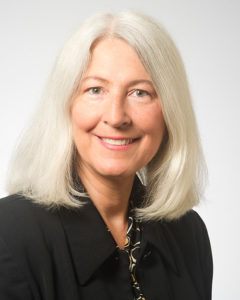
Specialties: Neuroscience, Micro-Optics, Bio-Optical Systems, Molecular and Cellular Engineering
Research Lab: Integrated Neuroscience and Imaging Laboratory
Dr. Murray’s research goals are to expand the reach and functionality of micro-optics for neuroscience applications and to create living bio-optical systems using molecular and cellular engineering. She plans to incorporate electrodes for field potential recording into implantable micro-optic devices and perform time-course experiments. Her main aim is to connect receptor dynamics, neural circuit function and behavior through in vivo fluorescence imaging, neural recording and behavioral experiments. This concerted approach will streamline experiments, enable unparalleled comparative analysis and elucidate connections not possible using multiple, discrete experiments. Additionally, this system will facilitate studies of neural dynamics and behavior in drug addiction, neurodegeneration, and stem cell therapy. While her focus has been on neuroscience, the tools and techniques she has developed have broad applications for life sciences and translational research.
Dr. Erica Murray
Specialties: Electrochemical Corrosion, Electrochemical Gas Sensors, and Additive Manufacturing
Affiliated Research Center: Institute for Micromanufacturing
Research Lab: Murray Electrochemistry Group, IfM Lab 1
Dr. Murray’s research focuses on electrochemical techniques to characterize the corrosion behavior of complex metal alloys fabricated by various additive manufacturing methods, including selective laser melting and friction stir weld AM. Metal alloys relevant to marine, automotive, and biomedical applications are studied. The aim is to correlate microstructural properties resulting from AM processing parameters with electrochemical corrosion behavior, in order to identify measures for fabricating AM parts with greater corrosion resistance. Also, studied are the electrochemical response characteristics of electroceramic materials for ammonia, carbon monoxide, and methane gas sensors.
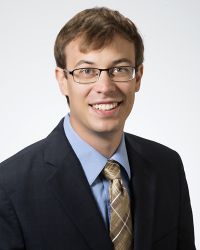 Dr. Andrew Peters
Dr. Andrew Peters
Specialties: Polymers, Computer Simulations, Molecular Dynamics
Research Center: Institute for Micromanufacturing
Research Lab: Peters Research Group
We are working to facilitate nanoscale control by applying the fundamentals of block copolymer phase separation and polymer dynamics. Advanced atomistic and coarse-grained simulation methods are used to understand and control ordered soft matter systems. We are currently studying the incorporation of waste plastic into asphalt, the development of new and improved thermoset shape memory polymers, the ordering of precision bottlebrush polymers, the organization of nanoparticles with block polymer ligands, and hydrogels for drug delivery.
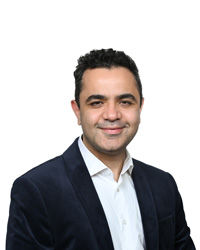 Dr. Hadi Salehi
Dr. Hadi Salehi
Specialties: Intelligent Infrastructure, Structural Health Monitoring, Smart Cities, Machine Learning, Self-powered Sensing, Energy Harvesting
Affiliated Research Center: Trenchless Technology Center
Research Lab: Intelligent, Data-Driven, Emerging & Adaptive Systems Technology Laboratory, Bogard Hall 114 and 115, and Trenchless Technology Center
My research interests lie in the areas of structural engineering, resilience of smart infrastructure systems, sustainable built environment, energy harvesting, advanced sensing systems, and machine learning. The overarching goal of my multidisciplinary research is to develop energy-lean monitoring systems that integrate energy harvesting, self-powered sensing, and data science for the resilience of infrastructure systems, as well as to enhance energy efficiency in smart buildings toward a sustainable built environment.
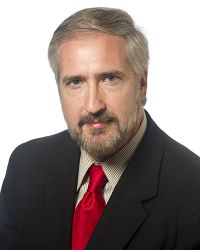 Dr. Lee Sawyer
Dr. Lee Sawyer
Specialties: Fundamental Forces, High-Energy Physics, Particle Physics
Affiliated Research Center: Center for Applied Physics Science
Research Lab: ATLAS Experiment at CERN, Geneva, Switzerland
Working on the ATLAS experiment at the CERN laboratory near Geneva, Switzerland, our research group explores matter at the smallest length scales and highest energies possible. The main instruments for this research are the Large Hadron Collider (LHC), a proton-proton collider currently producing collisions at 13.6 TeV in the center of mass; and the ATLAS detector, an enormous particle detector that tracks the products of the LHC collisions and measures their momenta and energies. Our particular area of research focuses on understanding the strong interaction between quarks ad gluons and looking for evidence of new strong interactions beyond the Standard Model of particle physics.
Dr. Roya Solhmirzaei
Specialties: Structural Engineering, Composite Materials, Ultra High-Performance Concrete, Concrete Technology, Machine Learning, Structural Fire Engineering
Research Lab: Resilient and Sustainable Infrastructure Laboratory, Trenchless Technology Center, Bogard Hall 114 and 115
My research interests are is in the areas of structural engineering, resilience and sustainability of civil infrastructure, advanced composite materials, ultra-high-performance fiber-reinforced concrete, structural fire engineering, and data science. My research goal is to enhance the resilience and sustainability of civil infrastructure by advancing construction materials, structural modeling, and design methodologies, and developing a deeper understanding of the impacts of hazards on infrastructure.
Dr. Heath Tims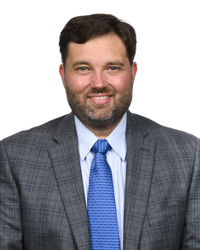
Specialties: Curriculum Development and Hands-On Learning
Affiliated Research Center: Integrated STEM Research Center
Research Lab: Eco-Car, Bogard Hall and ISERC, IESB
I am interested in curriculum development for both K-12 and college levels. I have been very active in STEM and STEAM outreach. I am also very active in hands-on learning and have used eco-car as an example to develop an apprenticeship model of learning.
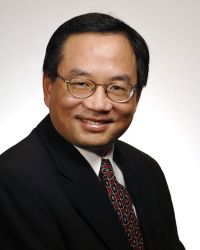 Dr. Jay X. Wang
Dr. Jay X. Wang
Specialties: Civil Engineering for Expansive Soil, Rooted Soil, MSE Walls, Slope Stability, and Pile Foundation
Research Lab: GeoTechnical Engineering Laboratory, Bogard Hall 108/109
Currently, Dr. Jay Wang is engaged in research on the impact of expansive soils on pavement and shallow foundations, and the erosion resistance of vegetation on wetland loss in Louisiana coastal areas. The methodology developed for analyzing the load and stress in pavement induced by heave/shrinkage of expansive subgrades is in the process of being implemented in engineering design.
Dr. Lingxiao Wang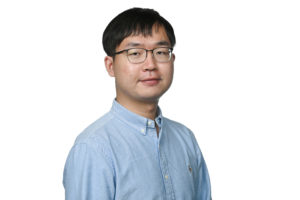
Specialties: Robotics, Autonomous Systems, Artificial Intelligence
Research Lab: Automatic Control Lab, Nethken Hall 213
My research work brings Artificial Intelligence (AI) and robotics closely together, aiming to develop a methodology for intelligent real-time decision-making in robotic systems to solve challenging real-world problems. Current projects include robotic odor source localization, autonomous navigation for mobile robots, and dynamic path planning in autonomous driving.
 Dr. Steven Wells
Dr. Steven Wells
Specialties: Parity Violating Electron Scattering, Nucleon Structure, Two Boson Exchange Processes, Standard Model Tests
Research Lab: Center for Applied Physics Studies, Engineering Annex
Parity Violating Electron Scattering. This is used to determine many aspects of nucleon structure, including the strange quark content of the nucleon, spin distribution of the nucleon in transitions to excited states, and tests of the Standard Model of Particles and Interactions. The experimental apparatus used for these measurements allows for studying two boson exchange effects in electron nucleon scattering, including constraining the gamma-Z box diagram and giving a direct measurement of the two-photon exchange amplitude.
 Dr. Collin Wick
Dr. Collin Wick
Specialties: Computational Materials Science, Model Development, Algorithm Development
Research Lab: Wick Research Lab, Nethken Hall 216
We carry out both first principles and large-scale simulations to study metals, metal/ceramic interfaces, polymeric materials, battery electrolytes and electrodes, and surfaces of liquids and materials. We also build computational tools to parameterize models for large-scale simulations, study complex interfacial processes, and study thermodynamic, mechanical, and shape memory properties. Collaborations with many experimental and computational researchers from around the University and region are a staple of my group, including mechanical engineers, chemical engineers, computer scientists, chemists, physicists, and mathematicians. These are used to tackle real-world problems of relevance towards developing new materials, interfacial coatings, new batteries, shape-memory materials, and self-healing materials to name a few.
 Dr. Yang Xiao
Dr. Yang Xiao
Specialties: Catalysis Science, Chemical Reaction Engineering, and Energy and Fuels
Research Center: Institute for Micromanufacturing
Lab: The Xiao Group – Reaction Engineering and Catalysis Science Laboratory
Catalysis science is the central component and primary driver for sustainable chemical and energy production in the future. The ongoing transition from fossil-based energy resources to alternative energy sources such as shale gas and biomass urgently requires the development of next-generation catalysts and catalytic processes. To move forward, it is imperative to bridge the relatively wide gap between fundamental research of catalysis science and the ability to transfer knowledge to practical innovation, which is essentially based on the discipline of chemical reaction engineering. The Xiao Group addresses these forefront challenges by integrally conducting catalyst design, controlled synthesis, in situ/operando characterization, kinetic measurements, reactor modeling for methane activation, and biomass to valuable chemicals and alternative fuels. The projects typically involve combined experimental and modeling investigations.
Dr. Sandra Zivanovic
Specialties: Photovoltaics, Semiconductors, Optoelectronics, Solar Cells, Photodetectors, Lasers, Polymers, Fullerene
Affiliated Research Center: Institute for Micromanufacturing
Research Lab: Optoelectronics Research Lab, Institute for Micromanufacturing Lab 6
Dr. Sandra Zivanovic’s research interests include bulk heterojunction polymer solar cells and photodetectors, and optical and electrical properties of semiconducting polymer-fullerene thin films. Her previous research interests include betavoltaic devices, semiconductor lasers, single mesowire transistors, biomedical sensors, graphene, surface plasmons, and fiber-optic sensors.